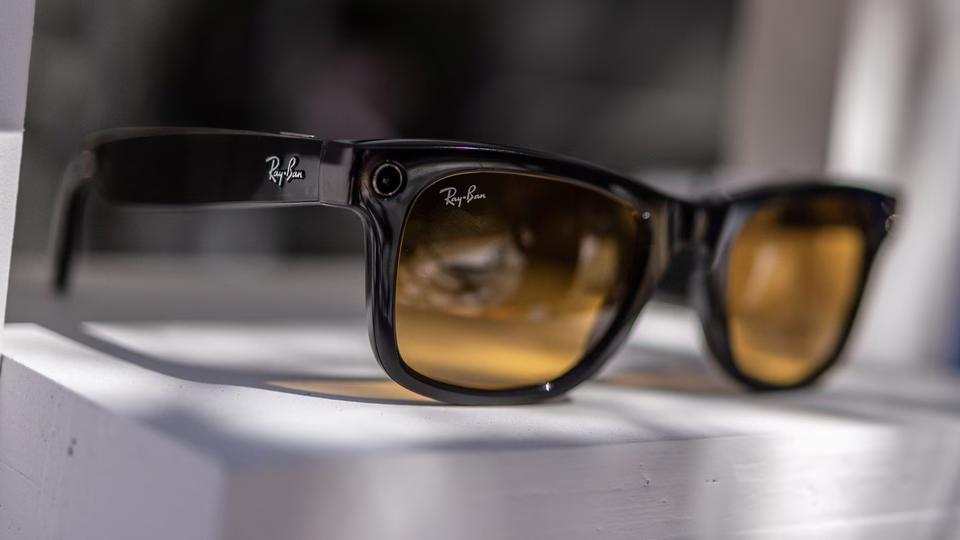
Google's Interest in Ray-Ban Smart Glasses: A New Competitor Emerges
Google, the tech giant known for its innovative products and services, is reportedly in talks with Ray-Ban maker EssilorLuxottica to integrate its Gemini AI assistant into future smart glasses. This news comes as Meta, the parent company of Ray-Ban Meta smart glasses, is also looking to acquire a stake in EssilorLuxottica.
Google's Pursuit of Smart Glasses with Ray-Ban Branding
Google has been seeking a deal with Ray-Ban to manufacture smart glasses with Gemini. Negotiations between the two companies are at an advanced stage, according to recent reports. Google's interest in partnering with Ray-Ban is not surprising, as EssilorLuxottica already has experience in the smart glasses segment through its collaboration with Meta.
Solos: A Potential Competitor to Meta and Google
Meanwhile, Solos, another player in the smart glasses market, is planning to release a camera-equipped version of their AirGo Vision glasses later this year. This new model can be integrated with Google Gemini and Anthropic's Claude AI models for hands-free video recording and voice assistance.
Google vs. Meta: The Race for Smart Glasses Dominance
The smart glasses market is heating up, with both Google and Meta vying for a dominant position. While Meta has already launched its Ray-Ban Meta smart glasses, Google is looking to enter the market with its Gemini-powered glasses. The outcome of this competition could significantly impact the future of wearable technology.
Google's Previous Attempts in the Smart Glasses Market
Google's previous attempt at smart glasses, Google Glass, did not gain widespread adoption due to privacy concerns and high price point. However, with advancements in technology and changing consumer preferences, the market conditions have improved significantly since then.
Conclusion: A New Era of Smart Glasses is Upon Us
The integration of AI voice assistants and camera functionality into smart glasses represents a significant step forward in wearable technology. Both Google and Meta are making moves to capitalize on this trend, with Google reportedly looking to partner with Ray-Ban for its Gemini-powered glasses. Solos, another player in the market, is also planning to release a camera-equipped version of its AirGo Vision glasses later this year.
As these companies compete for dominance in the smart glasses market, consumers can expect innovative new features and improved functionality. The future of wearable technology is exciting, and it will be interesting to see how Google, Meta, and other players shape the landscape.
:format(webp)/cdn.vox-cdn.com/uploads/chorus_asset/file/25510866/airgo_vision_1.jpg)

:format(webp)/cdn.vox-cdn.com/uploads/chorus_asset/file/25510865/airgo_vision_2.jpg)
/cdn.vox-cdn.com/uploads/chorus_asset/file/25510864/airgo_vision_3.jpg)